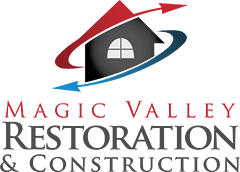
Indoor Air Quality Services in Twin Falls, ID
Our Trusted Local Business Helps You Breathe Easy
Fire, water, and sewage damage not only cause structural damage but can also impact the quality of your indoor air.
From soot and smoke infiltrating your HVAC system to mold and mildew growing in hidden areas of your home, breathing in poor indoor air quality triggers respiratory issues, such as asthma and allergies.
The best way to address indoor air quality is to understand the root cause and take the necessary steps to address it. At Magic Valley Restoration & Construction, our Twin Falls indoor air quality specialists can find the ideal solution to help you breathe easy.
We understand the importance of good air quality when it comes to your comfort. No matter the size of your home, we can provide an efficient solution that can alleviate the effects of poor air quality.
As a local, family-owned and operated business, we care deeply about the level of service we provide. That is why we always go above and beyond to keep your loved ones safe.
Receive quick, comprehensive & affordable indoor air quality services in Twin Falls, ID, by calling (208) 215-7607 or completing a contact form online today!
How to Improve Indoor Air Quality
There is a range of options available for home and business owners that address their air quality concerns.
Understanding the difference between these solutions can ensure your home benefits from clean, quality air.
Some of the solutions we may recommend for your home include:
- HEPA filters: HEPA is short for high-efficiency particulate air, and these filters can trap 99.9% of all particles that circulate through the HVAC system. These are recognized by the Environmental Protection Agency as the ultimate solution to remove airborne particles.
- Purification: Air purification installed in the HVAC system is aimed at removing particulates from the circulated air. These are highly recommended for those with chronic respiratory problems.
- Ozone treatments: Ozone can have the potential to render chemicals harmless using a chemical reaction that gives particles a charge and allows them to stick to surfaces in the air. These are not recommended for those sensitive to ozone.
- Electrostatic filters: As particles are charged in the air, particles are collected within the machine. These plates can be removed, washed, and replaced to keep the air clean.
- Activated carbon: These filters trap odor and gasses. This solution typically needs to be combined with other filters and it is best for eliminating unpleasant odors from the air.
- UV Lights: UV lights are germicidal, which means they can remove the smallest particulates from the system and purify the air as it moves through the home.
In many instances, more than one indoor air quality method should be used to provide the ideal solution for your property.
A professional from MVRC can look at your HVAC system and your indoor air quality concerns.
Our Twin Falls indoor air quality specialists can get to the root of the problem and recommend the best system or combination of systems.
What Are Common Indoor Air Pollutants?
Common indoor air pollutants can originate from various sources and may include:
- Dust and Particles: Fine dust, dirt, and particulate matter can be present in indoor air and can come from outdoor sources or be generated indoors through activities like cooking and cleaning.
- Pollen: Pollen from plants and trees can enter indoor spaces through open windows and doors, making it a common allergen.
- Mold and Mildew: Fungal spores from mold and mildew can be released into the air when these microorganisms grow in damp or humid areas, such as bathrooms, basements, or areas with water leaks.
- Pet Dander: Tiny flakes of skin shed by pets, along with their saliva and urine, can contain allergenic proteins that become airborne and contribute to indoor air pollution.
- Tobacco Smoke: Secondhand smoke from tobacco products contains harmful chemicals and particles that can linger in the air, posing significant health risks.
- Volatile Organic Compounds (VOCs): VOCs are emitted by various household products such as paints, solvents, cleaning agents, air fresheners, and furniture. They can contribute to indoor air pollution and may have health effects.
- Carbon Monoxide (CO): CO is a colorless, odorless gas that can be produced by incomplete combustion of fuel sources like gas stoves, heaters, and fireplaces. High levels of CO can be life-threatening.
- Formaldehyde: This chemical is often found in building materials, furniture, and pressed wood products. Prolonged exposure to formaldehyde emissions can lead to health issues.
- Biological Contaminants: These include bacteria, viruses, and other microorganisms that can be present in indoor air and may cause illnesses or exacerbate existing health conditions.
- Pesticides: Residues from pesticides used in and around the home can become airborne and contribute to indoor air pollution if not used properly.
- Asbestos: Older buildings may contain asbestos, a mineral fiber that can become airborne when disturbed. Inhaling asbestos fibers can lead to serious health problems.
Identifying and addressing these common indoor air pollutants is essential for maintaining good indoor air quality and promoting a healthy living environment.
Effective strategies include proper ventilation, regular cleaning, using air purifiers, and reducing or eliminating the sources of pollution.
What is the Ideal Humidity Level for Homes in Twin Falls?
The ideal humidity level for homes in Twin Falls typically falls between 30% to 50%. Maintaining this range helps prevent issues such as mold growth, musty odors, and structural damage, while also ensuring a comfortable living environment. Humidity levels outside this range can lead to health problems and potential damage to furniture and fixtures. It is advisable to use dehumidifiers or humidifiers as necessary to regulate the humidity level and create a healthier, more comfortable home environment.
Contact us online or call (208) 215-7607 to speak with a qualified, licensed technician in air quality services from Magic Valley Restoration & Construction.
-
“John was very professional and great to work with”
Daniel H. -
“The plumber was incredible; the team was professional, quick, and personable”
Stevie H. -
“John and his team were very professional and went above and beyond”
Cori W. -
“I felt very taken care of by this company”
Cindy J. -
“John and his team are first class professionals! Exceptional Service!”
Skyler P.
WHY HIRE OUR MVRC TEAM?
Committed to Delivering Quality Work
-
Top Rated Reviews
-
Licensed, Bonded, and Insured
-
1 Year Warranty On All Completed Jobs
-
Locally & Family Owned with Hands-On Owners
-
24/7 Emergency Plumbing & Restoration Services
Frequently Asked Questions

-
What Does Black Mold Look Like?You can often distinguish black mold from other types of mold or fungus by its slimy, dark-greenish color. It requires ample moisture to grow and thrive, so you will probably also notice signs of ... Read More
-
Is Black Mold Dangerous?Certain strands of black mold – Stachybotrys chartarum – can cause health problems if inhaled or ingested, especially for people with allergies, weakened immune systems, or respiratory issues. Not all ... Read More
-
My Water Heater Is Leaking — What Do I Do?If it is safe to do so and you know how to do it correctly, shut off the water supply to your water heater. Next, turn off the power supply to the water heater. Both of these steps can help prevent ... Read More
-
I Have Water in My Crawlspace — What Do I Do?Water in a crawlspace can harbor mold growth, make a cozy home for pests, and spike your water utility bills if it is caused by a leak. It can be remedied in some cases with a sump pump, vapor ... Read More
-
My Washing Machine/Dishwasher Is Leaking — What Do I Do?Many washing machine and dishwasher leaks are caused by a loose hose clamp near where the unit drains. Double-check this clamp is tightened all the way. If that does not solve the problem, you may ... Read More
-
I Had a Fire on the Stove, I Have Smoke Damage and My House Smells — What Do I Do?Burning food can stink up your entire home at best and cause smoke damage at worst. Don’t worry, we can help! If the fire has created smoke damage, give us a call and we will come pack up all the ... Read More

